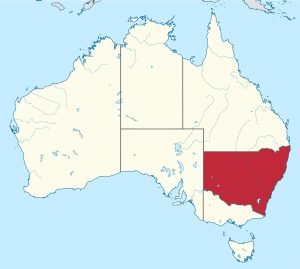A Baptist association in Australia has voted to require not only its member churches but all clergy accredited by the association to affirm a belief in marriage as “a covenant relationship ordained by God as a lifelong faithful union of one man and one woman” and that “sexual intimacy outside such a marriage relationship is incompatible with God’s intention for us as his people.”
Churches and ministers not agreeing with the doctrinal parameters will not be allowed to remain in the New South Wales and Australian Capital Territory Baptist Association, although an 18-month transition period has been given.
While the Nov. 12 vote by the Australians mirrors a pattern of disagreement among Baptists in the United States and elsewhere about LGBTQ inclusion and same-sex marriage, one notable difference is the power the association wields over ordained clergy.
In the United States, Baptist associations and conventions typically do not have accreditation power over clergy. In the Southern Baptist Convention, Cooperative Baptist Fellowship, Alliance of Baptists and most of the historic Black Baptist denominations, for example, all ordinations are matters handled by local churches. Associations and conventions may choose to deny membership to churches based on their ordination practices but do not control them. In the American Baptist Churches USA, ordination is handled by a partnership between local congregations and regional bodies, more akin to the Australian model.
 In the New South Wales Association, “accreditation involves the formalized approval of people as suitable, and available, for ministry within the Baptist churches. … It recognizes they have met certain requirements, that they have the appropriate qualifications and credentials for ministry, qualifications and credentials that are usually recognized nationally, and internationally by Baptist associations and unions belonging to the Baptist World Alliance,” the association’s website explains. “Accreditation means that the association stands behind the person, affirming their fitness to perform appropriately under the legal requirements of the state, with regard to such matters as marriage, child protection, and non-discrimination legislation.”
In the New South Wales Association, “accreditation involves the formalized approval of people as suitable, and available, for ministry within the Baptist churches. … It recognizes they have met certain requirements, that they have the appropriate qualifications and credentials for ministry, qualifications and credentials that are usually recognized nationally, and internationally by Baptist associations and unions belonging to the Baptist World Alliance,” the association’s website explains. “Accreditation means that the association stands behind the person, affirming their fitness to perform appropriately under the legal requirements of the state, with regard to such matters as marriage, child protection, and non-discrimination legislation.”
In Australia, the association maintains a List of Accredited Ministers. That’s something the SBC, for example, has steadfastly refused to do based on the Baptist doctrine of local church autonomy.
This historic Baptist principle of autonomy gave the Australian association pause in its recent deliberations, according to various local reports of the meeting. In fact, the association passed resolutions not only defining marriage but at the same time affirming local church autonomy.
Yet the issue of same-sex marriage was deemed to be so essential that it was elevated to a core conviction that must be agreed upon to affiliate with the association. A second resolution affirmed the autonomy of local churches to set their own beliefs while also stating that associations get to set the parameters of which Baptist churches they will cooperate with.
In other words, any Baptist church is free to set its own beliefs, but any Baptist church or minister desiring partnership with the New South Wales Association must agree with its core doctrinal parameters.
Last weekend’s vote was the culmination of a three-year process in the association, which encompasses about 350 congregations and more than 500 ministers. The meeting was held at Toongabbie Baptist Church in Girraween, Australia.
John Sandeman, blogging on the site The Other Cheek, gave a report from Steve Bartlett, director of ministries for the association.
“Because the local church’s autonomy is a core value of Baptists, balancing that principle against a doctrine of marriage and requiring churches and ministers to commit to it was at the center of discussion among the Baptists.”
Sandeman noted: “Because the local church’s autonomy is a core value of Baptists, balancing that principle against a doctrine of marriage and requiring churches and ministers to commit to it was at the center of discussion among the Baptists.”
The final result, however, is that “churches and ministers who disagree with the statement will have to leave the association. But they will leave with church property — unlike some other denominations the Baptist association is voluntary.”
Although the marriage statement and accompanying statement on church autonomy were adopted, an earlier motion that would have required a two-thirds majority to pass those statements failed. The final motions reportedly passed by a 60% vote.
Sandeman quoted two opposing views on the matters, the first from Melbourne Baptist blogger Murray Campbell: “Affirming (traditional) marriage should not be a controversial issue among churches, and it is a sad indictment on churches that there is any dispute or disagreement here. To believe that God designed marriage to be between one man and one woman and that all other sexual relationships are sinful is doing nothing more than believing what Jesus taught and what the Apostles affirmed.”
Then Morling College lecturer Michael Frost: “I’ve referred to our group of churches as an association or a denomination, but in a lot of our correspondence we call ourselves a ‘family of churches.’ I like that. Families are comprised of people who can disagree (sometimes wildly) on a whole host of issues, but who are bound together in love and by shared history. We don’t cast out a son or daughter or even crazy Uncle Charlie if they happen to disagree with the rest of us. When our differences on a single issue cloud our ability to see that love and shared history, we lose something very important. In fact, forgetting that sense of family is downright dangerous to the mission of the church.”
The association now has determined that same-sex marriage is not an issue where compromise or even disagreement is allowed.
In his pre-meeting blog, Campbell wrote: “Contrary to what Frost asserts, our understanding of sexual relations is a gospel issue. Our understanding of sexuality and marriage is connected to our view of Jesus, the Bible, the nature of sin and salvation, and more. Jesus was clear when he described sexual relations outside marriage between a man and a woman is porneia. … I don’t see how Frost can declare that this is ‘yet another non-core issue’ when the Bible is pretty clear that it is.”
That debate — whether same-sex marriage is an essential issue or not — stands at the heart of the debate over LGBTQ inclusion worldwide. In the U.S., Southern Baptists have said it is a core issue.
Within the moderate and progressive Christian community, however, LGBTQ inclusion and same-sex marriage are not seen as issues “clearly” settled by Scripture. Many affirming pastors counter that the six so-called “clobber” passages in the Bible used against same-sex relations are not about loving same-sex relations at all and that the texts have been misused and abused.
In other business, the New South Wales Association We voted narrowly to have a quota for women serving on boards and committees and to develop a plan for better female participation at all levels.
Related articles:
Couple helps parents of LGBTQ kids come out of the closet
Research documents how fundamentalists view LGBTQ inclusion as a zero-sum game they are losing


